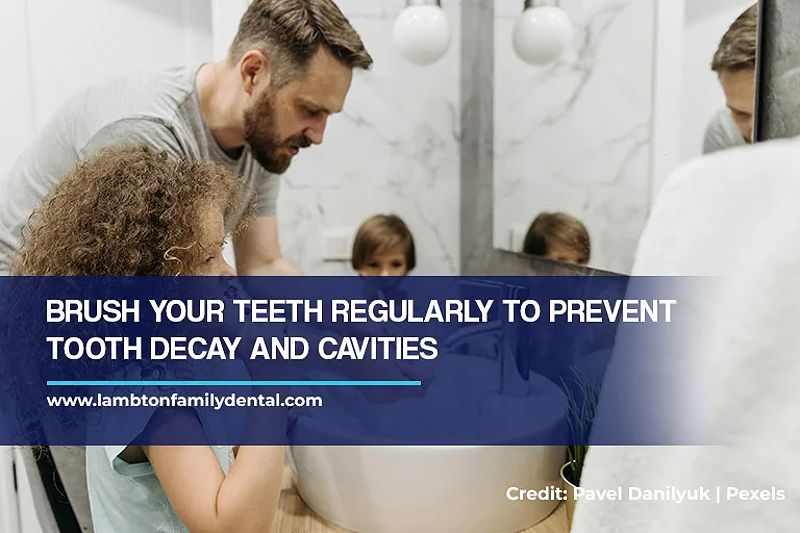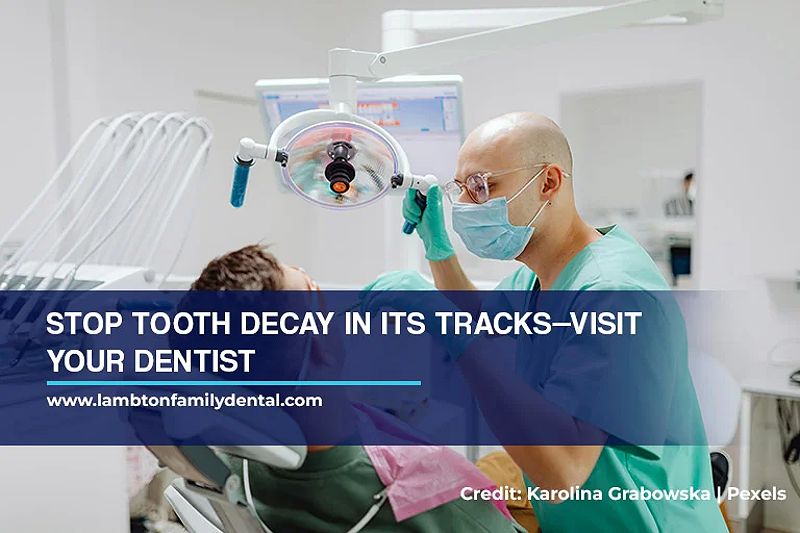How to Reverse Tooth Decay Naturally
Tooth decay, also known as dental caries, is a common problem that occurs when the hard enamel layer of a tooth is damaged by acids produced by bacteria in the mouth. These bacteria thrive on sugars and starches in our diet, creating an acidic environment that erodes the tooth’s protective layer.
In the early stages of tooth decay, the process can often be reversed through natural methods. This is because the enamel damage is still relatively minor, and the tooth has the potential to remineralize and repair itself. While tooth decay can’t be completely reversed without professional intervention, natural methods can significantly slow or even reverse the process in its early stages.
Understanding Tooth Decay and Its Reversibility
The Science Behind Tooth Decay
Tooth decay occurs when the bacteria in our mouth produce acids that attack the enamel, the hard, protective outer layer of the tooth. As the enamel becomes damaged, the tooth becomes more vulnerable to further decay.
Understanding Early-Stage Tooth Decay
In the early stages of tooth decay, the enamel damage is still relatively minor, and the tooth has the potential to repair itself through a process called remineralization. This is where natural methods can be particularly effective in reversing the decay.
The Role of Remineralization
Remineralization is the process by which the tooth can rebuild and strengthen its enamel structure. By providing the necessary minerals, such as calcium and phosphorus, natural methods can encourage this remineralization process, helping to repair the damaged areas of the tooth.
Dietary Changes for Healthy Teeth
One of the most effective strategies for reversing tooth decay naturally is to make specific dietary changes that promote dental health.
Limit Sugary Foods and Drinks
Reducing your child’s intake of sugary foods and beverages is one of the most impactful changes you can make. Sugar serves as the primary fuel for the harmful bacteria that produce acid, leading to enamel erosion and cavities. Avoid sugary snacks like candies, cookies, and pastries, and limit sugary drinks like soda, fruit juices, and sports drinks.
Embrace Nutrient-Rich Foods
To strengthen your child’s teeth, prioritize a diet rich in essential minerals and vitamins. Dairy products like milk, yogurt, and cheese are excellent sources of calcium and phosphorus. Incorporate leafy greens like spinach, kale, and collard greens, as well as fatty fish like salmon, tuna, and mackerel for their vitamin D and omega-3 fatty acids.
The Power of Crunchy Foods
Crunchy fruits and vegetables like apples, carrots, and celery can act as natural toothbrushes, helping to remove food particles and plaque. They also stimulate saliva production, which helps neutralize acid and wash away bacteria. However, it’s important to note that some hard, sticky foods like dried fruits or hard candies can potentially damage enamel if consumed excessively.
Beyond Diet: Hydration is Key
Staying hydrated is crucial for maintaining oral health. Water helps neutralize acid and wash away food particles, reducing the risk of tooth decay.
Essential Oral Hygiene Habits for Reversing Tooth Decay
Establishing good oral hygiene habits from an early age is essential for maintaining healthy teeth and preventing decay.
Brushing and Flossing: The Foundation of Oral Health
Brushing twice daily with fluoride toothpaste and flossing at least once a day are essential for removing plaque and food particles. Always supervise young children to ensure they use the correct technique and reach all areas.

Fluoride’s Role in Enamel Strength
Fluoride strengthens enamel by making it more resistant to acid attacks. It also helps repair minor enamel damage. Fluoride can be found in toothpaste, mouthwash, and some water supplies. If your local water supply is not fluoridated, consider fluoride supplements or other options with your dentist.
The Power of Oil Pulling
While oil pulling may offer some benefits, there is limited scientific evidence to support its effectiveness in reversing tooth decay. It’s important to consult with a dentist before trying oil pulling, especially for children.
Xylitol: A Natural Sugar Substitute for Oral Health
Xylitol is a natural sugar substitute that does not feed the bacteria that cause tooth decay. Chewing sugar-free gum containing xylitol after meals can help freshen breath, stimulate saliva production, and reduce the risk of cavities.
Natural Remedies for Reversing Tooth Decay
In addition to dietary changes and proper oral hygiene, there are several natural remedies that can help in your quest to reverse tooth decay.
Homemade Toothpastes for Remineralization
A basic homemade toothpaste recipe might include coconut oil, baking soda, and xylitol. You can also add essential oils like peppermint or tea tree oil for flavor and additional benefits. Always consult with your dentist before using any homemade toothpaste, as the formulation and safety for children should be carefully considered.
The Benefits of Aloe Vera
Aloe vera can soothe inflamed gums and promote healing, although more research is needed on its specific effects on tooth decay.
Other Natural Remedies
Apple cider vinegar rinses and baking soda paste have been suggested as natural remedies, but it’s important to use them with caution and consult a dentist, as they can potentially damage enamel if used improperly.
Seeking Professional Dental Care
While natural methods can be helpful, regular dental checkups and professional cleanings are essential for maintaining oral health.
Regular Dental Checkups: The Importance of Professional Care
Professional cleanings remove plaque and tartar buildup that can’t be removed with brushing and flossing alone, and they help identify any potential problems early on. The American Academy of Pediatric Dentistry recommends that children see a dentist for their first checkup by their first birthday.

Professional Treatments for Tooth Decay
If tooth decay has progressed beyond the early stages, professional treatments like fillings, crowns, or root canals may be necessary to address the issue.
When to Seek Professional Help
It’s important to seek professional dental care if you notice signs of tooth decay, such as tooth sensitivity, pain when chewing, or visible holes in the teeth. Early intervention is crucial for addressing dental issues and preventing further damage.
The Role of Genetics in Tooth Decay Susceptibility
While natural methods can be effective in reversing tooth decay, it’s important to note that genetics can also play a role in a person’s susceptibility to the condition. Some individuals may be more prone to developing cavities due to factors like the strength and thickness of their enamel or the composition of their saliva.
If your child has a family history of frequent tooth decay, it’s essential to work closely with your dentist to develop a personalized prevention and treatment plan. This may include more frequent dental checkups, the use of specialized dental products, or even genetic testing to identify any underlying predispositions.
The Benefits of Using a Tongue Scraper
Incorporating a tongue scraper into your oral hygiene routine can also be beneficial for reversing tooth decay. By removing the buildup of bacteria, food particles, and dead cells on the tongue, a tongue scraper can help reduce the overall bacterial load in the mouth. This, in turn, can contribute to a healthier oral environment and potentially aid in the reversal of early-stage tooth decay.
When using a tongue scraper, be gentle and avoid scraping too vigorously, as this can irritate the delicate tissues. Incorporate this practice into your daily routine, alongside brushing and flossing, for optimal results.
Additional Resources
If you’re looking for more information and support on reversing tooth decay naturally, consider exploring the following resources:
- The American Dental Association (ADA) – Provides evidence-based information on oral health and cavity prevention.
- The American Academy of Pediatric Dentistry (AAPD) – Offers guidance on maintaining healthy teeth in children.
- The National Institutes of Health (NIH) – Conducts research and provides educational resources on dental health.
- Local dental clinics or pediatric dentists – They can offer personalized advice and treatment plans for your child’s specific needs.
Remember, while natural remedies can be a valuable supplement, regular dental checkups and professional care remain essential for maintaining your child’s oral health and addressing any advanced tooth decay.
Conclusion on How to Reverse Tooth Decay Naturally
Protecting your child’s dental health doesn’t have to be complicated. By making simple dietary changes, implementing effective oral hygiene habits, and incorporating natural remedies, you can take a proactive approach to reversing tooth decay and maintaining a healthy, beautiful smile.
Remember to partner with your child’s dentist for regular checkups and professional care. With the right strategies in place, you can ensure your child enjoys a lifetime of cavity-free smiles, laying the foundation for strong oral health as they grow.
Talk to your dentist about the best ways to prevent tooth decay in your child. They can recommend personalized strategies based on your child’s individual needs. A healthy smile is essential for your child’s overall well-being, and by taking a proactive approach to dental health, you can help them enjoy a lifetime of healthy, beautiful smiles.
